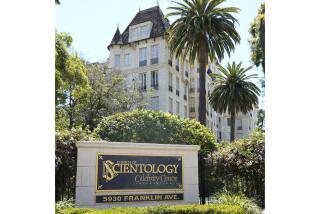Fees Paid by Scientologists to Church Held Deductible
- Share via
ST. LOUIS — A federal appeals court has ruled that donations made by Church of Scientology members as part of their religious practices may be claimed as a federal income tax deduction.
The U.S. 8th Circuit Court of Appeals ruled that set fees paid by Scientologists during their church’s individualized religious practices are deductible charitable contributions.
The ruling is contrary to one reached recently by the U.S. 1st Circuit Court of Appeals in Boston, which decided the payments are not deductible.
A spokesman for the St. Louis-based court said test cases have arisen in judicial circuits across the nation. He said the Supreme Court would have to issue a ruling for nationwide guidelines to be established.
The opinion, released Wednesday, pointed out that the U.S. Tax Court had ruled that the donations were not deductible because they were required for participation in Church of Scientology practices.
The fees addressed by the three-judge panel of the court were for doctrinal courses and “auditing” sessions, in which Scientologists seek awareness of an immortal spiritual being that exists independent of their body and mind.
‘Fixed Donation’
Participation in auditing sessions and doctrinal courses is conditioned on payment of a set charge, known as a “fixed donation,” from a schedule of fees established by the church for all of its activities.
The Tax Court concluded that fixed Scientology donations are not deductible because auditing and doctrinal courses are “general education or vocational training” for which payments are “somewhat comparable” to tuition.
But the circuit court ruled that the establishment by a church of a set “price” for religious participation does not change the nature of the benefit of religion to the individual or to society.
“If the Scientologist ‘prices’ were deemed to make participation in their religious services a material, financial or economic benefit such that . . . payments were not contributions, then the passing of the collection plate in church would make the church service a commercial project,” the opinion said.
More to Read
Sign up for Essential California
The most important California stories and recommendations in your inbox every morning.
You may occasionally receive promotional content from the Los Angeles Times.













